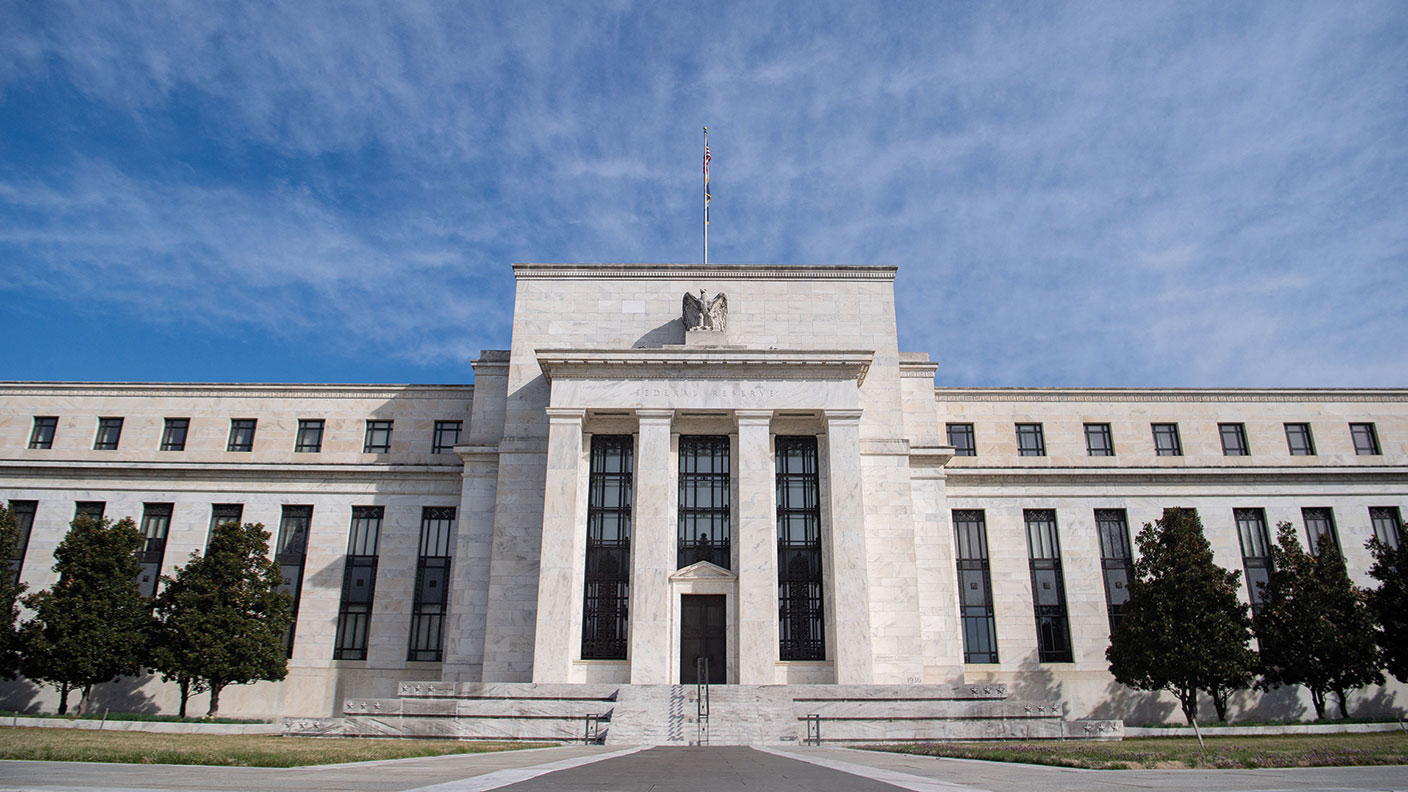
Get the latest financial news, insights and expert analysis from our award-winning MoneyWeek team, to help you understand what really matters when it comes to your finances.
You are now subscribed
Your newsletter sign-up was successful
Want to add more newsletters?

Twice daily
MoneyWeek
Get the latest financial news, insights and expert analysis from our award-winning MoneyWeek team, to help you understand what really matters when it comes to your finances.

Four times a week
Look After My Bills
Sign up to our free money-saving newsletter, filled with the latest news and expert advice to help you find the best tips and deals for managing your bills. Start saving today!
On 3 July 1884, the world's first stock index, the Dow Jones Transportation Index, was published by Charles Dow.
The index was made up of 11 transportation stocks, including nine railway companies. The average was calculated by adding the price of all the shares, and dividing them by the number of stocks.
The index now contains 30 stocks, including rail companies, road haulage companies, delivery companies and marine and air transport companies. The only remaining stock from the original 11 is the Union Pacific Corporation.
MoneyWeek
Subscribe to MoneyWeek today and get your first six magazine issues absolutely FREE

Sign up to Money Morning
Don't miss the latest investment and personal finances news, market analysis, plus money-saving tips with our free twice-daily newsletter
Don't miss the latest investment and personal finances news, market analysis, plus money-saving tips with our free twice-daily newsletter
Dow was a newspaper man, who, with Edward Jones and the largely forgotten Charles Bergstresser, founded Dow Jones & Company in 1882. The company's first publication was the Customer's Afternoon Letter, which contained financial news and share prices.
By 1889, the Letter had become the Wall Street Journal, containing four pages and selling for two cents.
Dow launched a further index, the Dow Jones Industrial Average, in 1895. This index is widely known as the Dow'.
After Dow's death in 1902, Dow Jones was acquired by financial publisher Clarence Barron. After over a century under the control of Barron's, it was taken over by News Corporation in 2007.
The index, along with many others including the S&P 500 and the Dow', is now produced by S&P Dow Jones Indices, a joint venture between McGraw Hill Financial, the CME Group and News Corporation.
The Transportation Index is critical to Dow Theory', which states that "industrials make and transports take". The theory is that a bull or bear market trend will have staying power if both the Industrial and Transportation indices are moving in tandem.
If the two diverge, there could be trouble. For example, if the industrial index is rising, but the transportation index is falling , the theory is that industry is producing too many goods for consumer demand, a bad sign for the economy in general.
Get the latest financial news, insights and expert analysis from our award-winning MoneyWeek team, to help you understand what really matters when it comes to your finances.

-
 Should you buy an active ETF?
Should you buy an active ETF?ETFs are often mischaracterised as passive products, but they can be a convenient way to add active management to your portfolio
-
 Power up your pension before 5 April – easy ways to save before the tax year end
Power up your pension before 5 April – easy ways to save before the tax year endWith the end of the tax year looming, pension savers currently have a window to review and maximise what’s going into their retirement funds – we look at how
-
 Canada will be a winner in this new era of deglobalisation and populism
Canada will be a winner in this new era of deglobalisation and populismGreg Eckel, portfolio manager at Canadian General Investments, selects three Canadian stocks
-
 US inflation brings no respite for markets
US inflation brings no respite for marketsNews As US inflation hit a 40-year high, the benchmark S&P 500 stockmarket index slid into a bear market, down more than 20% since its 3 January high.
-
 Central banks change their tune on inflation
Central banks change their tune on inflationNews With prices rising at 7.9% in the US and 6.2% in the UK, and global commodity prices surging, central banks around the world are being forced into inflation-fighting mode.
-
 Interest rates might rise faster than expected – what does that mean for your money?
Interest rates might rise faster than expected – what does that mean for your money?Analysis The idea that the US Federal Reserve could raise interest rates much earlier than anticipated has upset the markets. John Stepek explains why, and what it means for you.
-
 Quiz of the week 21-27 November
Quiz of the week 21-27 NovemberFeatures Test your recollection of the events of the last seven days with MoneyWeek's quiz of the week.
-
 A. Gary Shilling: a recession is coming
A. Gary Shilling: a recession is comingFeatures A. Gary Shilling was among the few investors to correctly predict a lengthy stagnation in the wake of the financial crisis. Now he's warning of a recession.
-
 The world’s greatest investors: Bill Nygren
The world’s greatest investors: Bill NygrenFeatures Nygren is a value investor who looks for companies that he thinks are trading below what he considers to be their intrinsic value.
-
 Buffett’s bet: can a tracker trounce the hedgies?
Buffett’s bet: can a tracker trounce the hedgies?Features There’s no sense in handing 1%-2% plus fees to fund managers when a cheap tracker gets results, says Stephen Connolly.
